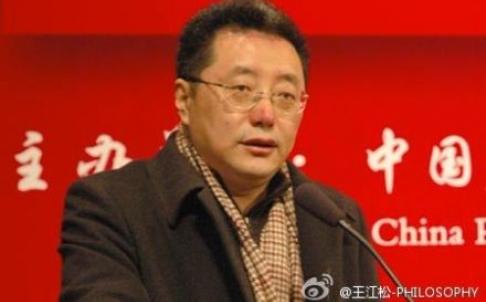Over 20 police on Sept. 13 stormed into the home of Wang Gongquan, a Chinese billionaire, and took him away: for supporting political and social reform in China, he was to be charged with the catchall crime of “assembling a crowd to disrupt order in a public place.”
Wang is the latest victim of a renewed Chinese Communist Party campaign to smother China’s nascent civil society movement. The push has mostly recently ensnared the venture capitalist Charles Xue, who was made to confess to visiting prostitutes on national television. Police confiscated from Wang’s house a computer, two framed pictures, and “citizen pins,” according to a friend.
“The way the Party does things is in movements. They’re doing a political movement right now, attacking entrepreneurs, activists, and people with influence on the Internet,” said Wang Juntao, a democracy supporter and scholar who studies the Communist Party.
Over 600 intellectuals from around the country have demanded that Wang be released.
Wang is a devout Buddhist, a venture capitalist with his own investment company, and a staunch supporter of the New Citizens’ Movement. The movement aims to help Chinese “press for their civil rights guaranteed by the Constitution through peaceful and legal approaches, to promote China’s peaceful transformation toward a more humane, freer, more just, and more loving society,” according to China Change, a website that supports liberal intellectuals in China.
The confiscated “citizen pins” may be used as evidence by the police against Wang. Caixin, a business magazine, reported in 2011 that Wang had commissioned 100 one yuan coin-sized “citizen stamps,” which featured the engraved images of the Chinese flag, an open book with the title “Constitution,” and the phrase “Chinese Citizen.”
Wang is a partner and founder of CDHfund, one of China’s biggest investment companies. He has more than ten years of venture investment experience and has made many successful investments in a variety of sectors, including Internet, media, education, energy, e-commerce, and franchise businesses. It is rare for a entrepreneur of his prominence to profess such liberal political views.
The arrest is indicative of the measures taken by the communist authorities to suppress any dissent or demand for reform. Being rich is no safeguard, according to Wang Juntao, the scholar, and no relation of Wang Gongquan: he said that the authorities are precisely concerned about entrepreneurs who have their own means of making money, independent of Party influence, and who support reform in China. They want to suppress this trend, he said.
“In China, there are two main ways to make fast money in China,” Wang Juntao said in a telephone interview. “There is real estate, where you cannot get rich without official support. Without the authorities seizing land and standing behind you, you have no way to make this money. The other way is information technology,” a means that does not rely so heavily on official power, he said.
Wang says that the Party’s message for entrepreneurs of Wang Gongquan’s ilk is simple: “You can make your money, but you don’t speak in the public realm about politics.”
With its punishment of Wang, the Party may also be attempting to prevent a repeat of the democracy protests in 1989. Then, the wealthy businessman Wan Runnan, former CEO of the Stone Group Co., the largest computer company in China in the late 1980s, financially supported the protest movement. After the massacre of students on June 4 he was expelled from the Communist Party and forced into exile.
In a speech he gave at Columbia University, Wang Gongquan described himself as “one of the very few Chinese who earns money independently.” He mentioned his dislike of getting involved with politics. Because of that, he “makes a much smaller profit” than he could with Party backing, Southern People Weekly, a liberal-leaning magazine, reported.
“I’m not a revolutionary”, Wang told the magazine on Aug. 2. “ I don’t wish for a revolution in China. Our country and nation has been damaged so harshly because of repeated violence. I only did what a citizen should do, providing constructive criticism for the sake of positive national reform. I didn’t protest, make trouble, or organize political power on the streets. I always do things without violating the law.”
A friend of Wang’s, rights activist Xu Zhiyong, was formally arrested this July on the same charge of “assembling a crowd to disrupt order in a public place.” In neither case have the authorities specified what sort of crowd Wang and Xu are supposed to have assembled.
After Xu was detained, Wang and four others wrote an open letter to the authorities demanding the release of Xu and other civil rights activists. That appeal collected thousands of signatures.
With reporting by Matthew Robertson. Research by Lu Chen.




